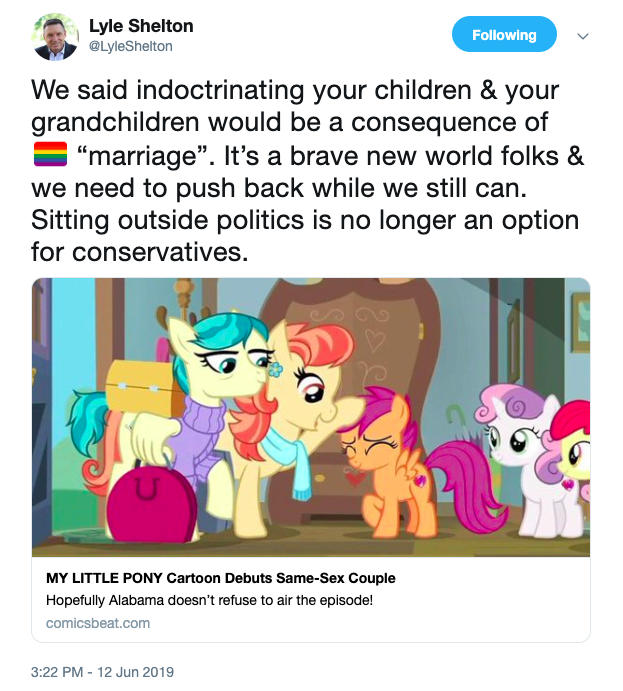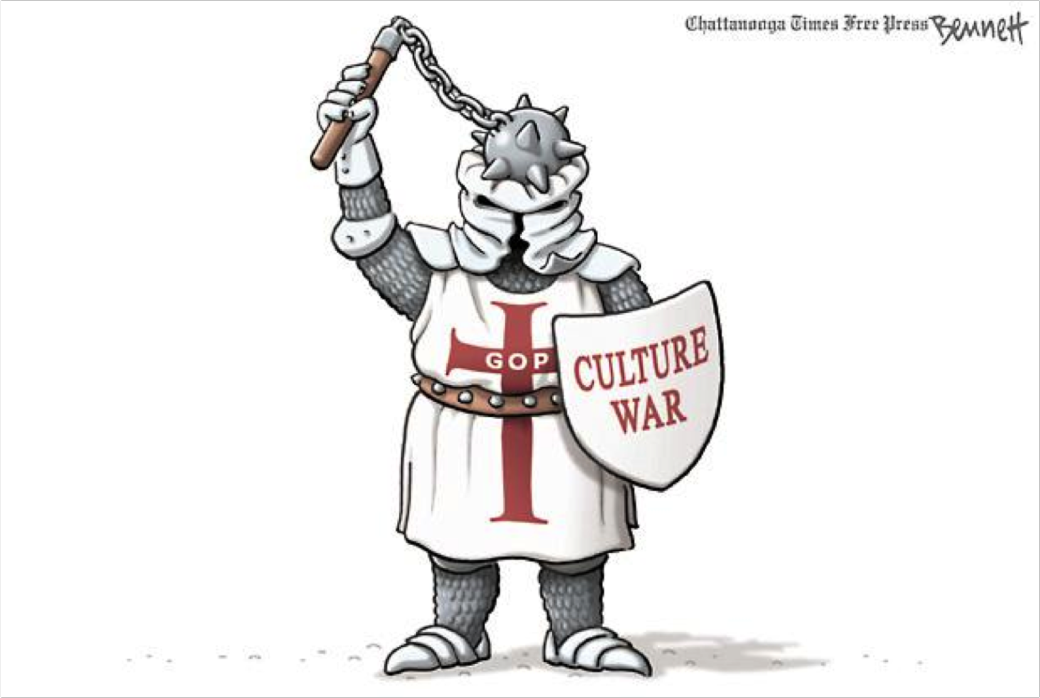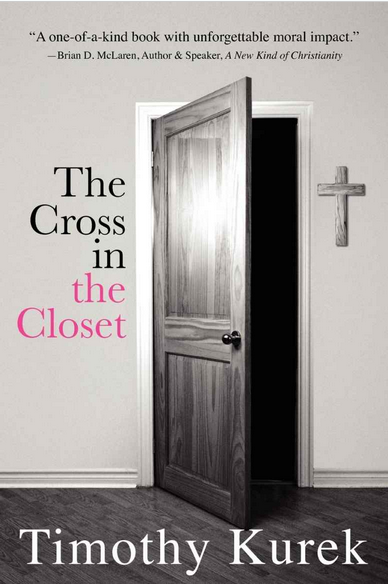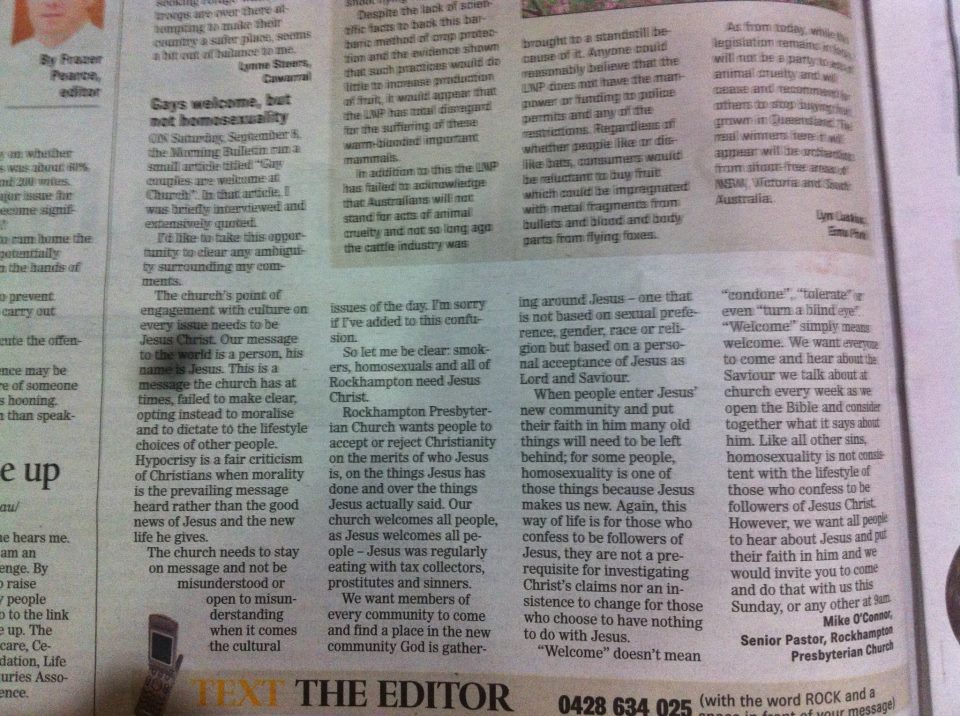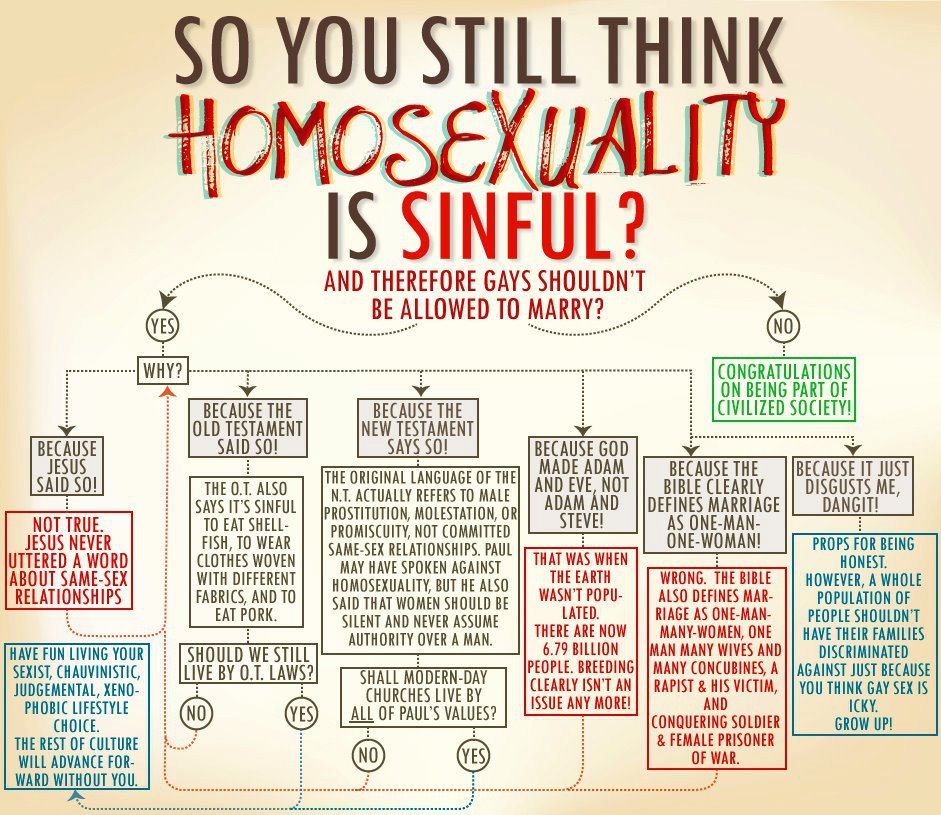Victoria passed its Change or Suppression (Conversion) Practices Prohibition Bill yesterday and the online reaction is predictably polarising.
I’ve written about why I think this was a bad Bill, but also why Christian opposition to the Bill was misguided and doomed to fail previously. I don’t have skin in the game on this fight (though Queensland has its own laws), but, my parents are moving to Melbourne in coming weeks to take up a job with a significant Melbourne Presbyterian Church, so I’m not exactly a disinterested observer either.
This morning the usual culture war champions Martyn Iles and Lyle Shelton have come out swinging against ‘Dictator Dan,’ Lyle is busy proclaiming this the death of liberal democracy (he’s also doing his best to disparage his home suburb of West End, in Brisbane, every time he opens a video blog), while young Martyn, when he’s not mansplaining vaccines, or defending Craig Kelly and Israel Folau, is also devoting significant attention to the Bill.
It’s been great that everyone who has spoken out against the Bill — including Lyle — have spoken explicitly against Conversion TherapyTM, the particularly coercive attempts to pressure same sex attracted people into orientation change. But almost every statement I’ve read has followed the condemnation of Conversion Therapy with a disclaimer that this is a unicorn, or phantom, or non existent problem, in order to pivot to smashing the Bill’s overreach.
I also appreciate David Bennett’s reaction to the Bill. David is a ‘Side B’ Christian (same sex attracted and committed to celibacy, read my review of his book A War of Loves here — that could well be a banned book now). He says, in a pretty powerful critique, that this is an attempt from the Victorian Government to ‘colonise queer Christian bodies.’
Look. This is complex. Christians are anxious — and despite the consistent disclaimer that we should be ‘not anxious’ even while reacting against this Bill, the reaction itself is a picture of an anxious response that the disclaimer isn’t overcoming. More than being non-anxious — we should be loving to our neighbours (including our political leaders), perhaps especially to those in our community it now seems needed an act of parliament to be protected from us (while we kept asking to keep being able to do things that apparently harmed them).
But here are three suggestions for a way forward for Christians — whether you’re in Victoria, or in a state yet to legislate in this area.
Show the LGBTIQA+ people in church communities you don’t want to eradicate or ‘colonise’ them
I mentioned David Bennett’s contribution to the discussion around this Bill above — of all the Side B Christians I know, he’s the first I’ve seen publicly respond to this Bill; and he, like others I know, has also given significant energy to carving out space for Side B Christians in theologically conservative churches. There’s a variety of possible positions for same sex attracted, or gay, Christians, and the labels Side B, Side A, and Ex-Gay are prominent options (there’s also a ‘Side Y’). Side A are the people who believe committed gay relationships are within God’s design for sex and marriage, Side B are those who don’t look to ‘change’ or ‘suppress’ their orientation, but redirect their lives and love to Jesus (typically they would be ‘celibate gay Christians’ or Christians in mixed orientation marriages), ex-Gay Christians are those who no longer ‘identify’ as same sex attracted, possibly having experienced therapeutic intervention.
In my observation, being a Side B Christian in conservative Christian institutions (and families) is pretty fraught. You get smashed from all sides:
- from Side A, because you have decided their conclusions are erroneous and sinful, and they fear you are suppressing something that you require for a flourishing life, even in the church,
- from Side ex, and lots of heterosexual church leaders because you are not fully ‘mortifying’ your sin and ‘changing your identity’ (and there’s plenty of policing about what label you can or can’t use, and what you should and shouldn’t do — both institutionally, and within families),
- from the world, because you’re not pursuing the expression of your authentic self based on your natural desires, you are suppressing something, and that is perceived as being harmful.
At the same time this Bill was being debated, church denominations like mine were writing documents that made Side B Christians in our community feel more marginalised; this is common around the world as major conservative evangelical denominations — of the kind most at risk from something like Victoria’s Bill — were busy also policing the identity-marking language used by celibate gay Christians — one denomination said such people shouldn’t call themselves a ‘Same sex attracted Christian,’ or ‘a ‘gay Christian’ but rather ‘a Christian who experiences same sex attraction’ — this sort of thing, then, gets used in family and church contexts to further marginalise these brothers and sisters; often looking (and feeling) a lot like they are being asked to ‘convert’ or ‘suppress’ something about themselves; and often in ways that are damaging and harmful. Every time I write about things like this I end up with more stories from people.
When we say ‘conversion therapy is a unicorn’ we have to be sensitive to the way our ongoing posture, as an institutional church, is causing harm — there are brothers and sisters so committed to Jesus and his bride, the church, that they remain in our communities despite this harm (and all human relationships involve a modicum of harm). But there are many others who have experienced this sort of policing of their person, our own internal identity politicking, who have left the church feeling harmed or traumatised.
I’m not sure that church experiences alone are ever the entire picture of trauma or harm experienced by gay people — suicidality in LGBTIQA+ communities is also disproportionately large in more liberal and supportive countries than Australia — but we have to own that we do not have a good record, or reputation, for loving LGBTIQA+ people in church communities, let alone those outside the church.
The theological posturing behind our identity politics on this feels a lot like assuming a modernist framework, and one built around renaissance-slash-reformation liberalism, and its emphasis on ‘the individual’ and ‘identity’ — and I’m not sure these are coherent theological categories to use to solve complex questions. This cuts both ways, because I’m not sure ‘gay identity’ is a coherent anthropological category in a totalising way — I’m probably more inclined to see descriptors as experiential rather than ‘ontological’ or to pursue a ‘narrative ontology,’ and one that accommodates the givenness of our bodies, and relationships, as genuine realities, over some sort of personal desire based neo-gnostic thing anyway. But we’re way underdone in our theology around personhood and desire — and until we’re not pumping out Margaret Courts and Israel Folaus without clear differentiation between their positions and ‘orthodox Christianity,’ and indeed, so long as we keep saying these sorts of marginal figures are orthodox simply because we agree with them on orthopraxy (or more literally, how people should use their genitals), we won’t get anywhere good (I mean, Folau doesn’t even embrace the Trinity).
The thing is, it’s our Side B Christians — like David Bennett — who are having to do not just the emotional, but the intellectual, labour on these questions; and rather than colonising them and insisting they align their experiences as closely as possible to ours, maybe we should be listening to them… I don’t just say this as a cheap ‘virtue signal’ thing either — the work of writers like Wesley Hill (and others at Spiritual Friendship), Nate Collins and people in the Revoice team, or Ed Shaw and others at Living Out — is way ahead of heterosexual Christian thought leadership on sexuality, the body, and identity — even as people in each of those groups have theological disagreements. These guys are the ‘desert fathers’ of the modern world; experientially disconnected from the mainstream idolatry of sex and individualism, and so in a position to critique the way the church has been swept up in idolatrous systems.
Show your LGBTIQA+ neighbours you understand the pain caused by Christians (and Christendom) as they celebrate this legal change
There are people in the Australian community genuinely rejoicing today and feeling like a victory has been won — not just the cynical culture warriors who’ve used this as a wedge issue to advance a progressive agenda and score social capital points without tackling deep, complex, structural issues (this is pretty low hanging fruit in a culture war). There are those who have pastored Side A Christians whose experiences of conservative churches have been deeply traumatic, those who’ve seen lives lost to suicide where bad Christian practices have been part of the story, those who are not Christian who see this as part of the ongoing march towards justice for their community-of-identity. In our collective grief and anger it would be easy to marginalise or dismiss that joy — rather than learning from it and asking where we should have reformed our behaviour both in the church, and outside it.
The same political actors who drove the Christian contribution to the culture war on Same Sex Marriage have not learned, and, as they double down not only are we continuing to set fire to our social capital (if we had any left after the plebiscite, or royal commission), they continue to perpetuate the reputation that Christians are homophobes who can’t live civilly in community with people who disagree with them. Fighting against this Bill, with whatever nuance we can muster, against the backdrop of rejecting the extension of participation in a civil institution to people who wanted it broadened to include them, and against harming vulnerable minors in our institutional care, looks a whole lot like Christians insisting on our rights to keep harming minors in our care, especially LGBTIQA+ minors. It was a deck way stacked against us, and the more we speak, the worse we look — we can’t say ‘we don’t like conversion therapy’ and ‘but it’s a unicorn’ while saying ‘let us keep doing what we’re doing’ if the perception is that we do bad things to people. We’d be better off investing in rebuilding our social capital — especially with the LGBTIQA+ community.
We should be signing up for ally training in our workplaces, advocating for improvements in mental health and wellbeing for LGBTIQA+ people, gently engaging with the complexity of the umbrella where the Trans political ideology finds itself at odds with LGB experience (and feminism), listening carefully and responding with love and concern both to individuals and, where possible, pushing for legitimate structural/systemic reform for the good of our neighbours. Pastoral theologian Mark Yarhouse, who is widely published on issues around sexuality and gender and writes from his own perspective as someone holding a traditional Christian sexual ethic, but also as someone who has conducted secular research in this field, co-authored a book in 2020 titled Emerging Gender Identities: Understanding the Diverse Experiences of Today’s Youth. A friend shared this quote from the book on Facebook:
“If theologically conservative Christians were as committed as politically active LGBTQ+ are to developing and upholding policies that protect all people, including vulnerable transgender people, in matters like bathroom access and workplace violence, perhaps our current polarisation could be attentuated, even if we still experience disagreements about human anthropology and the like.”
Perhaps indeed. It’d be nice to give it a try at least — the old ‘love your neighbour as yourself’ or ‘treat others as you would have them treat you’ (not ‘as they treat you’) — you know — what Jesus calls his followers to do. Personally, I’d like my neighbours to respect and allow my ability to gather in community with those I belong to, to freely practice my beliefs, and, inasmuch as possible, to be able to have the government recognise and allow me to practice my sexuality in a committed and safe relationship framework (while recognising that the government has a role in stopping me using my freedoms to hurt others).
Perhaps loving relationships across culture war divides, built on reciprocity and genuine seeking the interest of others is the best defence against Christian teaching meeting the legal threshold for action under this Bill. Harm.
Maybe Christians could do this with people who’ve got other experiences/identities shaping their approach to participation in community — like LGBTIQA+ individuals, but perhaps Christians in Victoria could do this, as well, by, you know, joining the Labor Party. Do some branch stacking of our own — and actually turn up to meetings and participate in political life.
Don’t fight the culture war
The absolute hottest of hot takes on this legislation ignores (or minimises) the face value rationale given for its introduction. LGBTIQA+ rights are definitely a hallmark progressive agenda item — partly because of critical theory, and intersectionality, and the left’s commitment to undoing structural inequality and its connection to patriarchy. But this is complicated — it’s the same ‘intersectionality’ that presents pressing issues for this bill; LGB groups and feminists have issues with trans ideology. Something has to give on that front, which means the ideological basis for this legislation as a piece of virtue signalling is weak — but — there’s also the genuine face value reason given, and that reason is possibly sufficient grounds for a progressive government to act in the interest of its polis. LGBTIQA+ individuals are statistically speaking, more vulnerable — and we don’t know all the factors leading to that vulnerability, but some of those factors are environmental/cultural — and some of that comes from Christendom and its moral frame (the sort of frame that saw homosexuality criminalised), and some of that comes from church practices (the type that has parents ostracising gay kids, with the support of their church community). We didn’t — and don’t seem willing — to get our own house in order on this issue. Maybe the Government actually is genuinely acting because of Christian bigotry, genuine harm, and a legitimate research paper into Christian culture and practices being a contributor. Maybe it’s evidence based — with a dash of ideology thrown in — and maybe it’s the ideology that led to overreach (noting that the Queensland government has already banned conversion therapy in clinical/professional settings and didn’t reach quite so far into the hard left’s bag of tricks).
The hottest of hot takes is that this Bill represents a government that is out to get Christians. That it is the thin end of a wedge — and next they’ll send out right-think manuals for churches, and then they’ll come for our sermons. Ultimately we’ll have to chop Romans 1 out of the Bible.
Let’s assume the premise of this hot take for a moment; that the concept of ‘conversion therapy’ is a phantom — or unicorn — that churches are beautiful and harmless communities committed to the flourishing of gay individuals in our families, and in the broader community, perhaps, then, this really is an attempt by the Victorian Government to eradicate us religious people who are beyond the pale… a crushing blow in the culture war… Perhaps this is the next stop on a ‘slippery slope’ or ‘cultural marxism’s long march through our institutions’ we keep being told about (rather than the ongoing pendulum swing towards leveling the legal/cultural playing field that once treated homosexual sex as illegal, and where there’s still work to go for that community in securing the freedoms it believes it needs to live a flourishing life).
Let’s assume the premise that the other side is fighting a culture war, hell-bent on our destruction; if that’s truly the case, we should respond in a heaven-bent way. The same person who said “blessed are the peacemakers, for they will be called children of God,” and “Blessed are those who are persecuted because of righteousness, for theirs is the kingdom of heaven.” Said:
“You have heard that it was said, ‘Eye for eye, and tooth for tooth.’ But I tell you, do not resist an evil person. If anyone slaps you on the right cheek, turn to them the other cheek also. And if anyone wants to sue you and take your shirt, hand over your coat as well. If anyone forces you to go one mile, go with them two miles. Give to the one who asks you, and do not turn away from the one who wants to borrow from you. “You have heard that it was said, ‘Love your neighbour and hate your enemy.’ But I tell you, love your enemies and pray for those who persecute you, that you may be children of your Father in heaven.” — Matthew 5:38-45
Our anxious temptation in the hottest of hot takes is to feel the heat and fight fire with fire. To lobby. To write letters (that in the context sound like we’re asking to keep harming people).
We should, as our Lord says, turn the other cheek. If the government is behaving badly, and there are those who would use this law to bring action against Christians we have a guidebook, and a guide: our crucified King. The answer to others playing a culture war against the church is not for us to play the culture war right back; it’s for us to be peacemakers who are ambassadors for Christ and ministers of reconciliation because we have been reconciled to God and are now part of his kingdom.
I’m often called naive for minimising the threat of the secular left (where, mostly, I just want to point out the similar threat posed by the secular right). I’m often asked, when I say, ‘don’t fight the culture war’ accused of pushing some sort of quietism, or asked whether I think that will work (whether ‘working’ is changing hearts, or minds, or legislation, or just ‘stopping them hitting us’). To be honest, I don’t assess the rightness of political action based on the results it might produce — but rather, on what it cultivates in me (and would cultivate in others). I do think that, over time, virtuous political action presented in a compelling way can bring positive change (think Wilberforce and slavery, or pretty much the historic impact of Christianity on the western world), but I don’t think it’s a short term silver bullet — and — frankly, I don’t think Christians are meant to pick actions that ‘win’ political fights or produce particular results — I think we’re meant to ‘do good,’ and that this ultimately is about following the example of Jesus, who, remember, was crucified by the state. I think the point of ‘martyrdom’ (that is, actions that testify to a bigger truth) is vindication by God, ultimately, because we have been faithful witnesses to his kingdom.
The good news is that if we respond to those who are seeking to do evil to us (again, still assuming there’s a nefarious agenda at play here, not the charitable surface level read of the motivations of the Victorian government, and those who voted for and advocated for this Bill)… if we respond to their evil with love, that exposes their evil for what it is, as Paul puts it in Romans 12:20-21: “If your enemy is hungry, feed him; if he is thirsty, give him something to drink. In doing this, you will heap burning coals on his head.” Do not be overcome by evil, but overcome evil with good.”
Why not try this?
It’s the same school of thinking that, when they were coming for our bakers, said ‘if someone wants to sue you for not making them a cake, bake them a wedding cake and give it to them for free’… We could be surprisingly loving in the face of hostility, rather than defensive and reactive. We could do things that rebuild some social capital, rather than setting it on fire as a beacon to our own self-righteousness. We could be a community of people who have a reputation not for harming LGBTIQA+ people, but pursuing their flourishing, even as we disagree on their theological convictions, in the hope that our love for them might be a plausible picture of the better humanity we find in Jesus and his kingdom.
We could be so loving and nurturing LGBTIQA+ people in our communities that not only are they plausible advocates for the goodness of the Gospel — even at personal cost of sex — not only are those individuals clearly still able to flourish (and not be harmed), but we — the church — become a plausible community for our LGBTIQA+ neighbours to enter while exploring the truth-claims of the Gospel. We can’t do that while also publicly doing things that look committed to their harm instead.
This Bill has enormous capacity for overreach — if, as it is tested in real life, and that is demonstrably the case, there will be opportunities for legislation to be changed and challenged. What this Bill aims to do, though, is undo the damage the church has (and does) do to vulnerable people in our community because we can’t get our posture and message right on sexuality and the call of Jesus for all people who join his kingdom.
